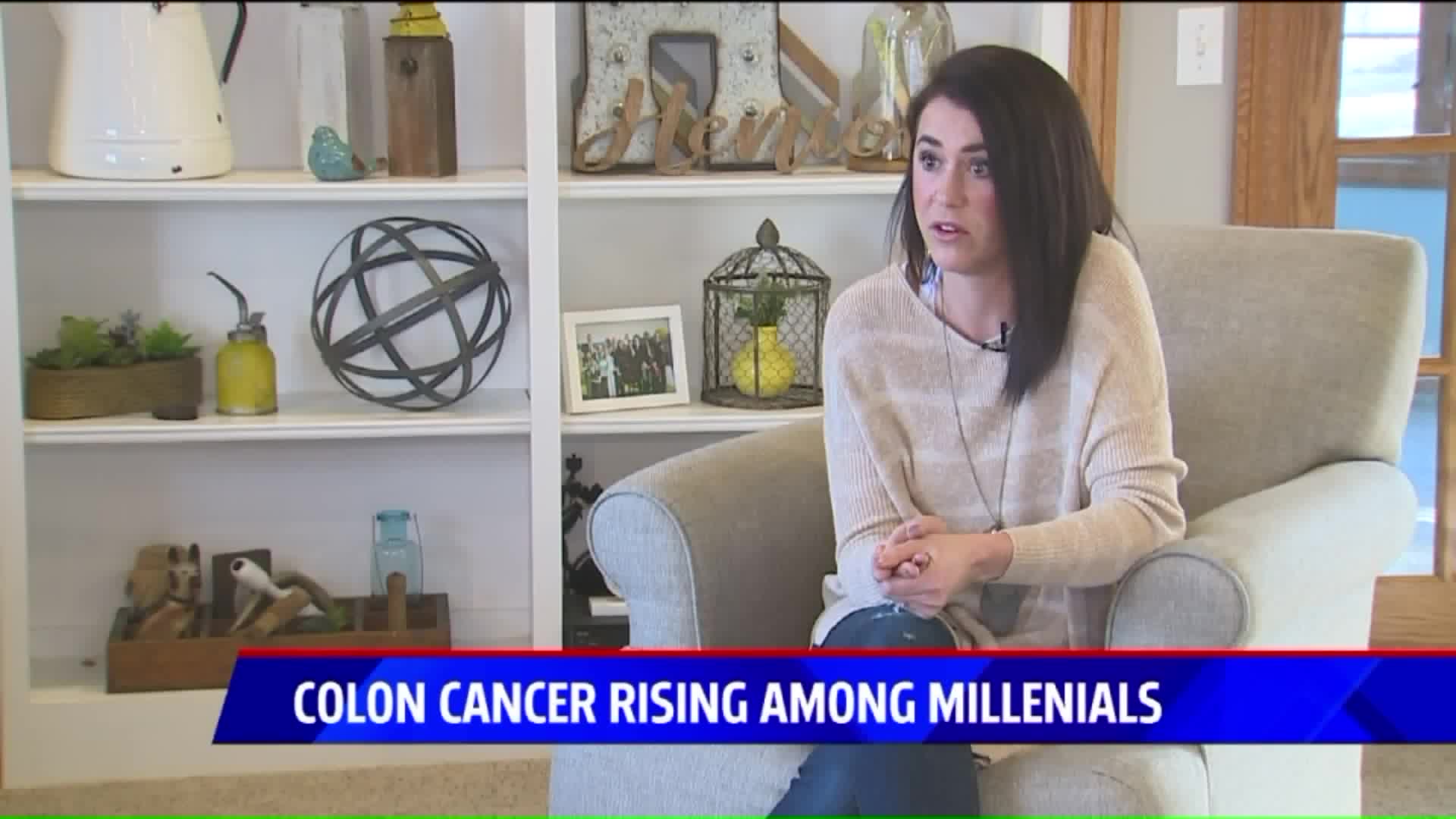BYRON CENTER, Mich. -- Heidi Henion's experience with colon cancer serves as a warning for all of us, but especially for younger adults. She survived colon cancer at 28 because she had early colonoscopies. Regular screenings aren't recommended until you're past 50.
But Henion got a warning when she was 12. "I remember my doctor telling me there's a potential for you to get cancer at some time in your life." After 12 years of colonoscopies and medications, she was diagnosed with colorectal cancer at 28.
Colorectal cancer is treatable and beatable if it's found early. Henion was one of 4,000 people under 40 who were diagnosed with that form of cancer in 2013. A report from the Journal of the National Cancer Institute shows colon and rectal cancers are rising among Millennials and Generation X.
"It’s somewhat alarming. It’s a trend that’s been persistent over the decade and really concerning, because we don’t know exactly why," said Dr. Judy Smith, chief of Spectrum Health's Cancer Center. "'Surging' might be kind of a hyperbole, but colon cancer rates are increasing since 1980 in individuals under the age of 50."
And Henion's case serves as a worst-case scenario. Her entire colon and rectum were removed. "I had to have a bag where I went to the bathroom nothing was connected anymore," Henion said.
After chemotherapy, her lower gastric tract and rectum were reconstructed using her own tissue, including her small intestine. Now Henion's body is functioning just fine.
"I’m officially cancer free, healthy living a life with my family that I love." And Henion hopes others will watch for signs of colon cancer.
Lifestyle and diet can contribute to colon cancer, Dr. Smith says. Poor diet -- lots of red meat and little fiber -- obesity and inactivity are prime causes.
Screening is currently recommended for men and women ages 50 and up. Dr. Smith says if you have a personal risk factor or family history of colon cancer, get screened earlier. For example, if your mother got cancer at 55, you should get your colonoscopy at 45.
Signs and symptoms you might have colon cancer include abdominal pain, blood in your stool, changes in bowels such as constipate, narrow stools and excessive gas.
You can lower your risk of colon cancer with physical activity, healthy eating and limited alcohol and tobacco.
If you have a diagnosis or suspicion of cancer and you would like a second opinion, call 855-SH-CANCER.




